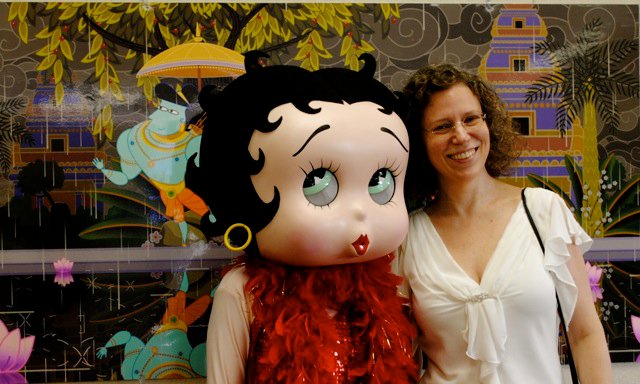In my endless attempt to explain what’s wrong with Creative Commons’ “non-commercial” and “no derivatives” restrictions, I came across this 2005 article by Benjamin Mako Hill:
Free Software’s fundamental document is Richard Stallman’s Free Software Definitions (FSD) [3]. At its core, the FSD lists four freedoms:
- The freedom to run the program, for any purpose;
- The freedom to study how the program works, and adapt it to your needs;
- The freedom to redistribute copies so you can help your neighbor;
- The freedom to improve the program, and release your improvements to the public, so that the whole community benefits;
…For the CC founders and many of CC’s advocates, FOSS’s success is a source of inspiration. However, despite CC’s stated desire to learn from and build upon the example of the free software movement, CC sets no defined limits and promises no freedoms, no rights, and no fixed qualities. Free software’s success is built upon an ethical position. CC sets no such standard.
This has led to a proliferation of harmful and incompatible CC-NC and CC-ND licensed works, mistakenly labeled “Free.” Mako Hill points out that while Creative Commons pursued its goal of “Balance, compromise, and moderation,” it failed to define or defend any core freedoms. Indeed, there seems to be no concern about what the “Free” in Free Culture means. To most it means, “slightly less restrictive than modern copyright.” Even so, most CC licenses are more restrictive than pre-1970’s copyright (because modern copyright’s extended terms and more draconian punishments for infringements still apply).
Fortunately the Four Freedoms of Free Software easily apply to Culture:
- the freedom to use the work and enjoy the benefits of using it
- the freedom to study the work and to apply knowledge acquired from it
- the freedom to make and redistribute copies, in whole or in part, of the information or expression
- the freedom to make changes and improvements, and to distribute derivative works
That’s not so hard, is it?
Ironically I was arguing with Richard Stallman last month about the Free Software Foundation‘s use of -ND licenses on its cultural works. A film they sponsored, Patent Absurdity, has “no derivatives” restrictions even though it could be greatly improved by editing, and clips could be highly beneficial in other works. Freedom #4 FAIL. Even the FSF fails to apply the Four Freedoms to Culture!
Software IS Culture. Many in the Free Software Movement draw a false distinction between “utility” and “aesthetics,” claiming software is useful and culture is just pretty or entertaining. But you never know how a cultural work might prove useful to someone else down the line. If you treat it as non-useful, and restrict it to prevent other uses, then of course it won’t be useful – you’ve restricted its utility through an unFree license.
The Free Software community needs to learn that Software is Culture. The Free Culture community needs to learn that Free is Free.
FREE. CULTURE. It’s not so hard.
Addendum: I consider Richard Stallman a friend. I argue with him, without thinking less of him. I’m grateful he’s his stubborn self. I just happen to not agree with him about restrictive licenses on cultural works.




